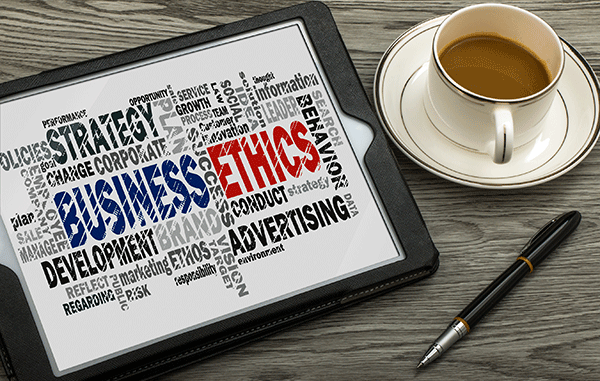
By Iris A. Cooper
Once upon a time when I was an eager small business banker, I had a loan appointment with a new client. This individual had been in business for several years with three employees, and needed an expanded working capital line of credit. He was asked to bring his financial statements and tax returns to the meeting for my analysis. Now I had previously seen discrepancies between accrual and cash financial statements, but the margin between the earnings on the financials versus the losses on the tax returns were outrageous. When asked to explain the difference, the prospect said sarcastically, “Every shrewd entrepreneur keeps two sets of books- one for Uncle Sam and one with the facts!” I sat there wishing he hadn’t made that remark. There was no way I was going any further with this character; I couldn’t trust him. Trust is the foundation of integrity.
Integrity is not a commodity that is turned on and off like a faucet, depending on the circumstances, but an ever-present component of an honorable person. Integrity is the most valuable asset available when operating a small business. The owner is the business; without the owner’s knowledge, skill, commitment, and integrity, the business is nothing. Integrity should be injected into every action or reaction, if respect is the end goal. This business man thought that integrity didn’t include consistent, accurate, financial statements and that his explanation demonstrated his honesty. Perhaps it did show that he knew right from wrong, but it also displayed a willingness to play whatever card available to win the game. How was I to know fact from fiction when dealing with this joker?
Ethical behavior is often defined as doing what is right, even if no one is looking. When operating a business, the assumption should be made that someone is always examining the owner’s brand including employment policies, customer service, safety practices, and community commitment. A good reputation falls quickly and takes a much longer time to rebuild, since bad news travels much faster than good. Unfortunately, there is nothing more important than the Golden Rule in business: treat others the way you want to be treated. This policy does not mean that the customer or employee is always right, but it does mean that fairness and diplomacy must always be practiced in a dispute. Ethical dilemmas occur when the right and wrong position are confusing, and personal values are conflicted.
Here are a few examples.
• Cleaning supplies are a little cheaper at Wal-Mart, but your MBE fraternity brother sells supplies that are comparable but slightly higher. He sees you in Wal-Mart with a cart full of cleaning products and asks why you don’t support minority businesses like his. What do you say?
• Your sister-in-law needs a job and you hire her as the receptionist in your beauty salon. She talks too much and is consistently late because she shares a car with her husband, your brother. The stylists and customers are complaining. What do you do?

In the first scenario, your brand as an MBE is threatened when you do not support other MBE’s. MBE’s often work with higher overhead and must charge higher prices. However, customer service and loyalty are often superior when working with an MBE or other smaller enterprise. Relationships mean everything and certainly much more than a 10% price differential. In the second situation, a policy manual would have helped if reviewed with every new employee. No one should be allowed to disrupt the business with personal issues, including family members. Employee manuals with clear policies about conduct in the workplace can help to minimize confusion and conflict. The sister-in-law needs to understand the job expectations and commit to uphold them in the business setting. If she cannot meet the job responsibilities, she must be replaced.
Ethical behavior also means that deception can be achieved by commission or omission; deception occurs when information is blatantly erroneous or when significant facts are misleading or left out entirely. When deception begins, the end will undoubtedly include the loss of employees, customers, business associates, and even family members who no longer respect the owner’s word or behavior. If we have learned anything about unethical business practices from the last decade, we have learned that wrong doers will be identified and punished; it’s just a matter of when and how. As Gandhi wrote:
“The things that will destroy us are: politics without principle; pleasure without conscience; wealth without work; knowledge without character; business without morality; science without humanity; and worship without sacrifice.”
Start the New Year right: separate right from wrong and steer clear of the in-between!
JUSTASKIRIS! Your Source For Sound Advice
